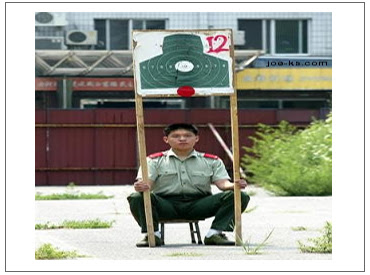
People in Hong Kong are luckier than sometimes they know. Unlike Singapore they don't pay 300% tax on their cars (and then a $15,000 a year license fee) and unlike China they can view the BBC web site amongst others.
(Don't even bother to click the above if you are in China as you won't be able to see the page). Mine, and thankfully this blog remain safe.
But when you work in China, or if you have interest in the online space in the Asia region this latest report (courtesy of Google blogscoped) makes very interesting reading. From the organization Reporters without borders (another one on the China hit list I suspect) has published a report on the governments inner workings around web sites and what gets blocked by the new great wall of China.
You can read the full report here
In my role as interactive manager have to look at the Chinese market when it comes to approving advertising. Now, China is progressing very quickly and while a company like mine is unlikely to be working with anything even remotely anti-government (for all the usual corporate reasons) but never the less this report does make interesting reading. Here are a few bullet points I found:
1. The Beijing Information Office has introduced a new system of “licence points" for websites. As well as being fined, sites can have points withdrawn. If they loose all their points, they risk to get their license withdrawn. But they have the possibility of recovering lost points and are encouraged to do so.
2. Various forms of communication have been established between the leading commercial websites and the supervisory bodies – phone, email, SMS text messages, MSN, QQ and RTX (Real Time eXchange) instant messaging, web platforms and a weekly meeting. The Beijing Internet Information Administrative Bureau uses these different means of communication to instruct sites to not publish an article, to not cover an event or issue, or to put a stop to certain comments. The employees of these privately-owned sites are expected to liaise with the bureau and respond to its orders as quickly as possible. (...)
Is China democratic - No. Do we care or should we be surprised by this document? Probably not given the economic impact that the country has. As for the guidelines and inner workings; Its essential to read this document if you want to advertise or work the online space in China. Of course Google and Yahoo self sensor articles and have handed over blogger details to the authorities, hence the need to move the "Don't be evil tag."
"This is China." And we are going to see a lot more of this, which is a shame.
Written on Saturday, 13 October 2007 by ali bullock
Internet censorship in China
0 Comments
Subscribe to:
Post Comments (RSS)

0 Responses to "Internet censorship in China"
Post a Comment